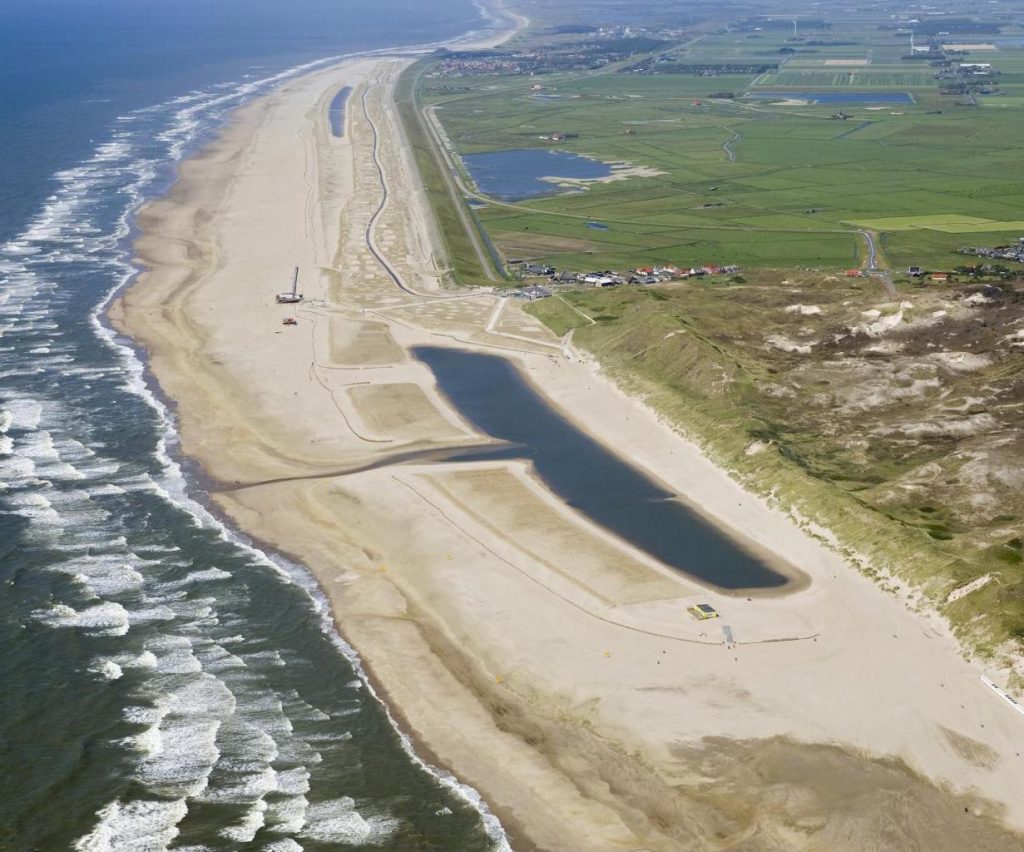November 8 is Resilience Day at COP26 when the Ocean Risk and Resilience Action Alliance (ORRAA) and global marine contractor Van Oord will co-host a 90 minute session to bring together private sector, civil society and public sector actors to focus on coastal resilience, discuss opportunities and challenges, highlight innovative solutions and inspire accelerated climate adaptation action.
Sven Kramer, director of sustainability at Van Oord sets the context for the session
Deltas and coastal areas around the world are facing the worst effects of global warming. Such effects include sea level rise, changing weather patterns, extreme weather conditions, soil subsidence and endangered biodiversity. Therefore, societies need to commit their energy and investments in climate adaptation besidespreventing further global warming. This is particularly true for societies with densely populated delta areas full of infrastructure and utilities, which often are important economic centres that provide jobs and prosperity.
The 2021 IPCC report highlights that coastal urban deltas and low-lying island states are most vulnerable to climate change. In fact, some are slowly sinking, and/or coping with rising sea levels. Emerging economies in Asia are expected to bear the larger burden related to sea level rise, together with other regions in the global south such as the South Pacific Islands, West Africa, as well as Western Europe and the Southeast Coast of the US.
The implementation of effective coastal and river defenses is crucial for the protection of a significant share of our global population as more than 600 million people (around 10 percent of the world’s population) live in coastal areas that are less than 10 meters above sea level. Nearly 2.4 billion people (or 40 percent of the world’s population) live within 100 km (60 miles) of the coast. Source: UN.ORG
Global at-risk hot spots identified
Coastal protection at such a scale requires an exceptional effort on the part of all stakeholders concerned, such as financiers, insurers, governmental policy makers, landowners, private companies, NGOs and local communities. To push climate adaptation higher on the political agenda, Dutch maritime company Van Oord developed the Climate Risk Overview, which digitally zooms in on global coast lines using public source data. This open tool, also shared with the Global Center on Adaptation (GCA), can be used to highlight global hot spots as priority coastal areas at risk. The tool is meant for policy makers and marine engineering companies to develop long-term resilience plans in Africa, Asia, and the Caribbean.
Government leaders know they have to act now. History teaches us over and over again that proactive planning and investing in coastal defense infrastructure always pays back in the long run. Investing in coastal resilience not only protects assets and infrastructure, it has a direct impact on the wellbeing of millions of people living and working there.
Solutions can be found
A range of coastal defense solutions exists from solid to nature based. We call for proactive, coastal resilience adaptation planning, integration of nature-based solutions and innovative financing. We want to build inclusive partnerships that focus on replicating and scaling existing nature-based solutions to contribute to a more resilient world. For example, in Maldives, Netherlands, Indonesia, Senegal and other vulnerable countries, coastal resilience solutions have been implemented using mangroves, sand motors, coral reef restoration and beach brakers, generating multiple benefits.
Scaling them globally requires a fundamental look at how we plan for resilience as nations and society. The Resilience Hub at COP26 will explore this very issue of ambitions on resilience and actions at scale. Non-state actors from businesses, the investment community, civil society, academia, cities and regions will come together virtually and in-person to highlight the urgency for climate adaptation action to create a resilient world for all.
To save the world from sinking, Van Oord will be there to raise the importance of active collaboration and the usage of nature-based solutions to accelerate coastal resilience around the world.
Share your thoughts with us on this quest for a more resilient world for current and future generations on www.vanoord.com/sustainability
Resilience Hub Event: Ocean Action is Climate Action: Accelerating resilience to secure a sustainable future for coastal communities. Monday November 8 12.00 (GMT) in Blue Zone Hall 5 or virtual platform
Picture: Van Oord consortium created broad dunes and beaches along the Hondsbossche and Pettemer seawall, Holland to protect the coastline against super-storms. The innovative project design also created space for nature conservation and leisure activities. The project included planting 640,000 sq metres of marram grass.

